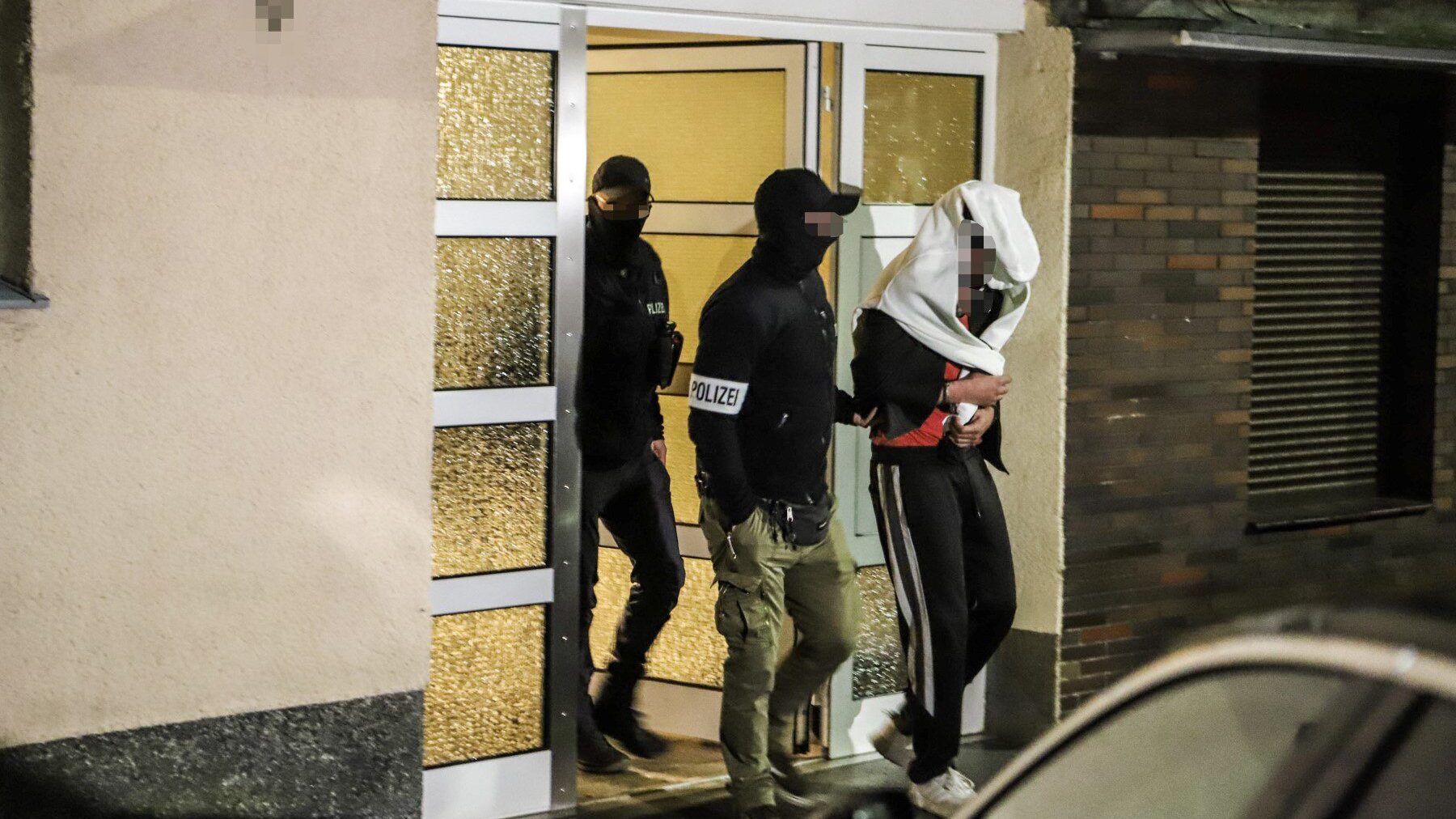
Police guide an arrested person out of a residential house in Hagen, western Germany, on May 3rd, 2023 as part of a “wide-scale” operation against the notorious Italian ‘Ndrangheta mafia across Europe.
Photo: Alex Talash / AFP
A major European operation has been launched against the powerful ’Ndrangheta, or Calabrian mafia criminal organisation.
“This is probably the biggest operation ever carried out in Europe against the Calabrian mafia,” Eric Van Duyse, spokesman for the Belgian federal prosecutor’s office, told the media.
The operation, launched on the morning of May 3rd, will take place in eight European countries: Italy, Germany, France, Spain, Portugal, Slovenia, Romania, and Belgium. One hundred and fifty searches are already planned and will be carried out by several thousand police officers across Europe—a thousand in Germany and 1,400 in Italy.
The operation—called Eureka, ‘I have found,’ in Greek—is the result of an investigation led by a Belgian magistrate since 2018. Though the investigation was opened by the Belgian public prosecutor’s office, it is being conducted in cooperation with the Belgian judicial police and the European agencies Europol and Eurojust. More than a hundred members of the ’Ndrangheta are currently being investigated for drug trafficking, arms trafficking, money laundering, and various fraud and tax offences.
The Calabrian mafia, known as the ’Ndrangheta, is one of the most ferocious and deadly mafias, although less famous and less publicised than its Neapolitan (Camorra) and Sicilian (Cosa Nostra) counterparts. Its origins are rural and mediaeval. Like the Sicilian and Neapolitan mafias, it took off at the time of Italian unity as a form of local resistance to the installation in the Mezzogiorno of the Piedmontese monarchy from the North.
The organisation remained in the shadows for a long time before taking advantage of the decline of its Sicilian competitor in the 1980s and 1990s. It specialised mainly in cocaine trafficking before diversifying its actions and extending them to the whole world. It expanded to the point that the United States, under George W. Bush in 2008, added it to the list of the most dangerous criminal organisations operating on American soil. The fight against the organisation now goes far beyond the borders of Italy.
The ’Ndrangheta is based on family ties that are both extremely powerful and discreet, complicating the work of their opposition. Its annual turnover is estimated at over €50 billion.
Dozens of arrests are underway, according to the FAZ, which reports on the German side of the investigation. The investigators have uncovered the trade routes used for drug trafficking operated by the ’Ndrangheta: Drug trade passes through the Calabrian port of Gioia Tauro—a port entirely dedicated to container transport and under the control of the organisation—but also through ports in Germany, Italy, and the Netherlands, based on agreements made by the ’Ndrangheta with Colombian and Albanian criminal organisations.
In 2020, the Catanzaro prosecutor Nicola Gratteri said in an interview with the French newspaper Le Monde that Europe had “underestimated the ’Ndrangheta for too long,” while a major trial against the Calabrian mafia was opening—at that time, mainly focusing on the Italian part of the organisation.
In 2021, the head of the network, Rocco Morabito, was arrested in Brazil and extradited to Italy the following year.
Bavaria’s Minister of the Interior Joachim Herrmann now describes Operation Eureka as a “significant blow to the ’Ndrangheta,” which completes the actions carried out over the past few years.
